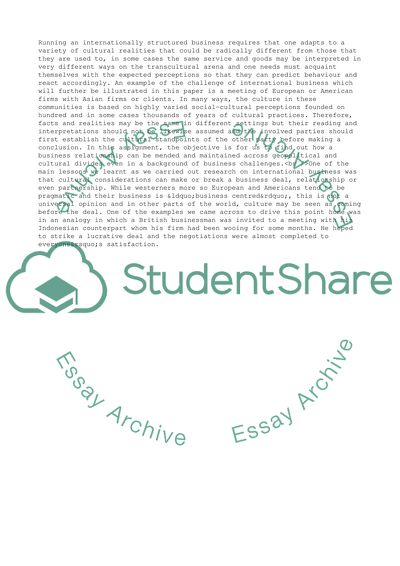Cite this document
(Business Cultures of UK and Indonesia Essay Example | Topics and Well Written Essays - 1500 words, n.d.)
Business Cultures of UK and Indonesia Essay Example | Topics and Well Written Essays - 1500 words. https://studentshare.org/business/1833343-business-cultures
Business Cultures of UK and Indonesia Essay Example | Topics and Well Written Essays - 1500 words. https://studentshare.org/business/1833343-business-cultures
(Business Cultures of UK and Indonesia Essay Example | Topics and Well Written Essays - 1500 Words)
Business Cultures of UK and Indonesia Essay Example | Topics and Well Written Essays - 1500 Words. https://studentshare.org/business/1833343-business-cultures.
Business Cultures of UK and Indonesia Essay Example | Topics and Well Written Essays - 1500 Words. https://studentshare.org/business/1833343-business-cultures.
“Business Cultures of UK and Indonesia Essay Example | Topics and Well Written Essays - 1500 Words”. https://studentshare.org/business/1833343-business-cultures.


